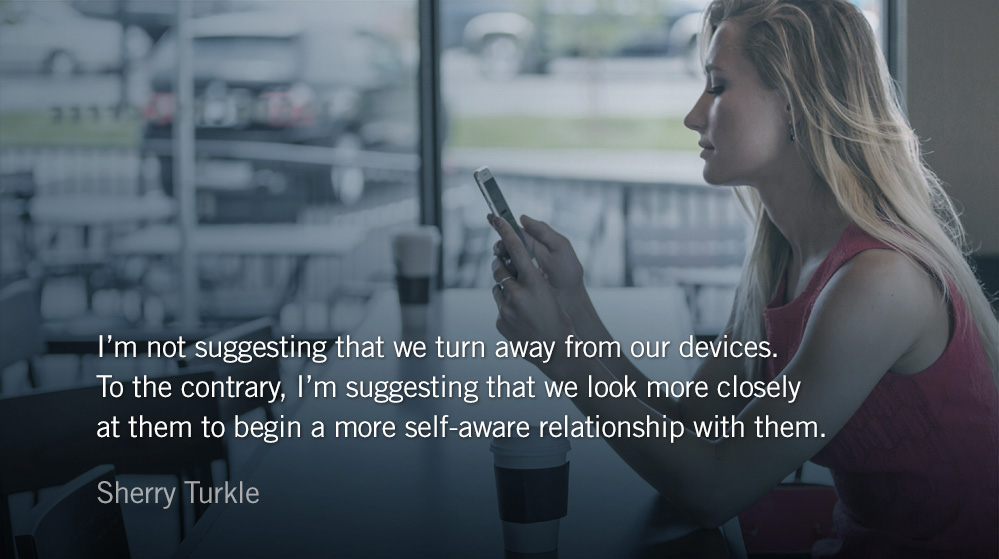The Summer Reading Series is designed to equip our growing community with curated book recommendations that shape faith and sharpen cultural insight.
By Sherry Turkle
We are being silenced by our technologies—in a way, “cured of talking.” These silences—often in the presence of our children—have led to a crisis of empathy that has diminished us at home, at work, and in public life.
I begin my case by turning to someone many people think of—mistakenly—as a hermit who tried to get away from talk. In 1845, Henry David Thoreau moved to a cabin on Walden Pond in Concord, Massachusetts, to learn to live more “deliberately”—away from the crush of random chatter. But the cabin furniture he chose to secure that ambition suggests no simple “retreat.” He said that in his cabin there were “three chairs—one for solitude, two for friendship, and three for society.”
These three chairs plot the points on a virtuous circle that links conversation to the capacity for empathy and for self-reflection. Solitude reinforces a secure sense of self, and with that, the capacity for empathy. Then, conversation with others provides rich material for self-reflection. Just as alone we prepare to talk together, together we learn how to engage in a more productive solitude.
Technology disrupts this virtuous circle.
The disruptions begin with solitude, Thoreau’s first chair. Recent research shows that people are uncomfortable if left alone with their thoughts, even for a few minutes. We are so accustomed to being always connected that being alone seems like a problem technology should solve.
And this is where the virtuous circle breaks down: Afraid of being alone, we struggle to pay attention to ourselves. And what suffers is our ability to pay attention to each other. If we can’t find our own center, we lose confidence in what we have to offer others.
I’m not suggesting that we turn away from our devices. To the contrary, I’m suggesting that we look more closely at them to begin a more self-aware relationship with them. So, my argument is not anti-technology. It’s pro-conversation.
We miss out on necessary conversations when we divide our attention between the people we’re with and the world on our phones. Or when we go to our phones instead of claiming a quiet moment for ourselves. We have convinced ourselves that surfing the web is the same as daydreaming. That it provides the same space for self-reflection. It doesn’t.
It’s time to put technology in its place and reclaim conversation.
*Excerpt from Sherry Turkle, Reclaiming Conversation: The Power of Talk in a Digital Age. Penguin Press, 2015. Book review in The New York Times.
Today’s Reading
Isaiah 38 (Listen – 3:20)
Revelation 8 (Listen – 2:15)


